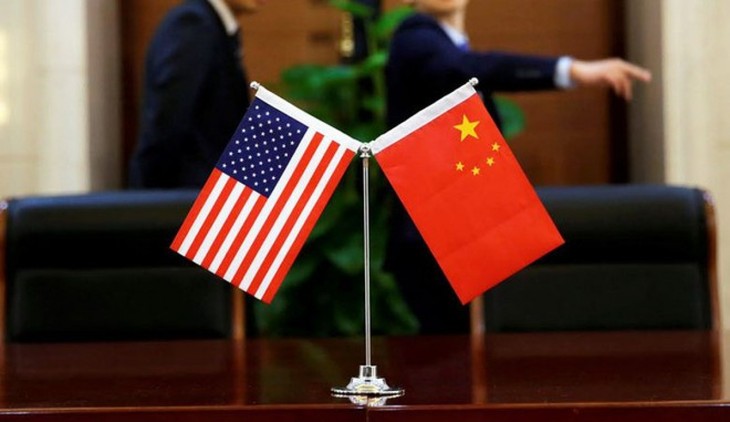(VOVWORLD) - US-China relation has long been central to international relations. But since President Donald Trump took office nearly four years ago, this relation has entered a new period of strategic competition and confrontation which intensified in multiple ways this year.
 (Photo: baoquocte.vn) (Photo: baoquocte.vn) |
As soon as he took office in 2017, President Trump launched comprehensive strategic competition against China on several fronts considering China the US’s number one strategic competitor. The US has implemented a number of tough policies against China and the competition became even fiercer in 2020.
Competitions in all aspects
Since COVID-19 broke out in Wuhan, China, the Trump administration has repeatedly accused Beijing of not immediately disclosing the epidemic and not providing sufficient information about it and called it the Chinese virus. The US threatened to sanction China and require China to pay for the serious damage caused by COVID-19. In retaliation, Beijing accused Washington of politicizing the crisis to divert the public away from the US’s failures to cope with the epidemic.
In July, the US abruptly ordered China to close its consulate in Houston, accusing diplomats of aiding economic espionage and the attempted theft of scientific research. Beijing denied all the accusations and retaliated by ordering the closure of the US consulate in the city of Chengdu in Sichuan province.
“Tit for tat” related to Hong Kong have fueled the tension. In response to China’s enactment of a new Hong Kong security law on June 30, President Trump on July 14 signed an order to end preferential economic treatment for Hong Kong and adopted the Hong Kong Autonomy Act, which imposes sanctions on officials and entities in Hong Kong and mainland China who are deemed to have violated Hong Kong's autonomy, and punishes financial institutions that do business with them.
Confrontation between Washington and Beijing extends to the South China Sea (known as East Sea in Vietnam). The US has rejected China’s claims in the region and has stepped up patrols by warships and military aircraft to enforce freedom of navigation and aviation in the East Sea.
The two countries are also facing off over technology. After blacklisting Huawei in in 2019, President Trump in August issued executive orders banning its transactions with Chinese tech firms ByteDance and Tencent which own Tiktok and WeChat, the two top applications developed by China. The US has also expanded its blacklist of Chinese companies, tightened visas for Chinese Party members, and suspended cultural exchanges between the two countries.
Adjusting policy, direct confrontation
During the last 40 years since the US and China established diplomatic ties in 1979, US Presidents have pursued positive engagement policies of cooperation and restraint in its relationship with China while trying to engage China in the current international system where the game is arranged by the US. Since China changed its diplomacy of “hide your strength and bide your time” to “major country diplomacy”, relations between Washington and Beijing have deteriorated.
The US administration issued a “Strategic Approach to the People’s Republic of China” in May this year, which calls for a confrontational approach to the challenges China presents and to compel Beijing to cease or reduce actions harmful to the US’s vital, national interests and those of its allies and partners. The US administration’s tough stance against China has been supported by both parties in Congress.
US-China strategic competition is now the main axis of international politics. Though this confrontation is unlikely to end soon under the new US administration, analysts doubt there will be any major conflict in 2021 because the two have shared interests in many areas of economic cooperation.